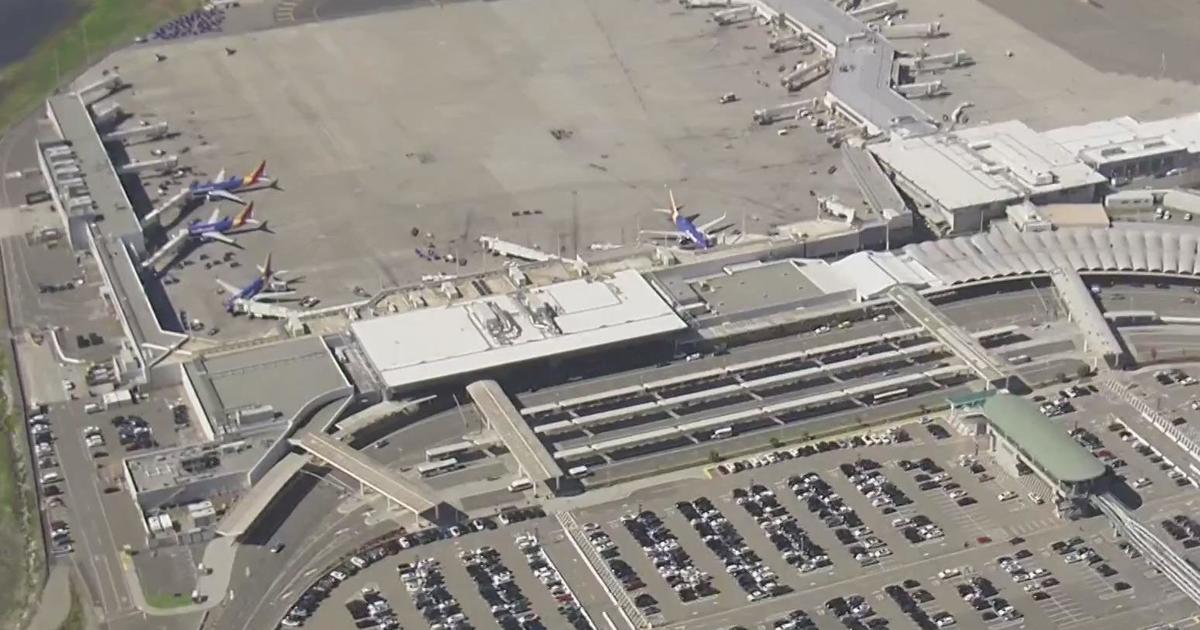Bay Area Cities Grapple With Sanctuary City Executive Order, Federal Funding Threat
SAN FRANCISCO (KPIX 5) -- The city of San Francisco renewed its fight against President Donald Trump Wednesday, asking a judge to stop an executive order that strips funding from sanctuary cities.
The city is calling it an emergency.
It's been 42 days since President Trump signed an executive order setting the stage for defunding sanctuary cities. Since then, nothing. Sanctuary cities don't know what's going to happen.
On Wednesday, the San Francisco City Attorney Dennis Herrera filed a motion in federal court to say that uncertainty is now an emergency.
Molly Lee is one of the attorneys representing San Francisco in a lawsuit against the Trump administration.
"What we did today was file a motion for preliminary injunction and that's asking for a court order to immediately stop enforcement or application of the executive order," Lee explained.
To stop the executive order, the city has to show there's an emergency. In this case the emergency is the mayor's budget. It has to be completed by May 15, but no one knows what money is coming from the federal government.
"We have not yet received any clarity from the Trump administration about what the scope of funds at issue are…this places the city in a terrible position…we receive over $1.2 billion dollars in federal funds as part of our annual operating budget plus an additional $800 million in multiyear grants -- that is a huge amount of money for the city of San Francisco," Lee said.
To make matters worse, according to the lawsuit, the $2 billion from the federal government is reimbursement money -- that means it's already been spent. Lee says the effect of losing federal funds, would be dire.
"Senior meal programs would likely be canceled, we wouldn't be able to find homeless services - there would be catastrophic consequences," she said.
The fear of losing federal funds was on the minds of some people who turned out to a Dublin City Council meeting Tuesday night. The council was voting on whether to become a sanctuary city.
"Why did counsel propose this to staff? That's really why I'm here tonight," a resident said. "As you wrote in the report, you risk losing $83,000 in federal funding. Right off the bat, you risk it."
Dublin resident Alvin Lui opposed the sanctuary city ordinance and explained why some immigrants came out against being a sanctuary city.
"They and their families spent a lot of time following the process, filling out the right paperwork, waiting in line. And they didn't feel it was right for people to cut in front of line...and be able to come here without the procedures they did," Lui said.
Ultimately the Dublin City Council decided not to become a sanctuary city.
The city of Salinas, however, has decided to become the third Northern California local government to sue President Trump over the executive order.
The Salinas City Council voted in closed session Tuesday night to authorize City Attorney Chris Callihan to file a federal lawsuit against Trump and other executive officials to challenge Trump's Jan. 25 executive order.
The vote to sue was unanimous by the six council members present.
Trump's order would withhold federal funding from local governments that the Trump Administration deems to be "sanctuary jurisdictions" that shield undocumented immigrants from deportation by federal authorities.
Although Salinas has not declared itself a sanctuary city, Callihan and Salinas Mayor Joe Gunter said they feared the city may nevertheless be at risk of losing its $10 million in annual federal funding, including funds for road repairs and firefighter positions.
"The city is seeking to protect not only the ... millions of dollars in federal funds the city receives each year, but also to protect all its residents, regardless of their immigration status," Gunter said at a news conference Tuesday.
Callihan said he expects to file the lawsuit in the U.S. District Court for Northern California within the next several weeks.
San Francisco and Santa Clara County previously filed similar lawsuits. Both those cases have been assigned to the same judge, U.S. District Judge William Orrick of San Francisco, for purposes of judicial efficiency.
Orrick is scheduled to hold a hearing April 5 on Santa Clara County's motion for a nationwide preliminary injunction blocking implementation of the order. The city of San Francisco Thursday asked for a similar preliminary injunction hearing before Orrick on April 12.
The previously filed lawsuits claim Trump's order violates the U.S. Constitution by usurping Congress's spending power and illegally seeks to force local governments to enforce a federal regulatory program.
The U.S. Department of Justice has said it will respond to the lawsuits in court.
Gunter said, "The City Council did not take this issue lightly." But he said, "Salinas, like most of Monterey County, is dependent on the agricultural economy. That economy is supported by immigrant workers who may or may not be in this country legally."
He continued, "The city should not get into the middle of that discussion, since that is a matter for the federal government to handle. If those hard-working families are ripped apart and deported, not only will they suffer, but the local economy will suffer -- all of us will suffer."
The cities of New York and Los Angeles have also sued Trump to challenge the order in their local federal courts.
TM and © Copyright 2017 CBS Radio Inc. and its relevant subsidiaries. CBS RADIO and EYE Logo TM and Copyright 2017 CBS Broadcasting Inc. Used under license. All Rights Reserved. This material may not be published, broadcast, rewritten, or redistributed. Bay City News Service contributed to this report.



